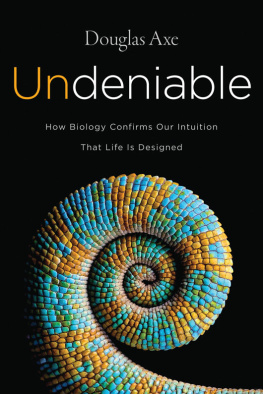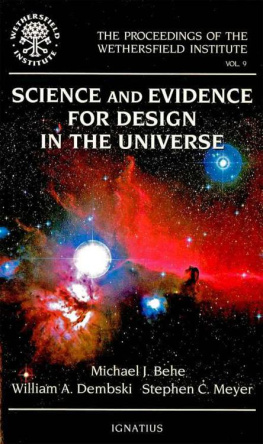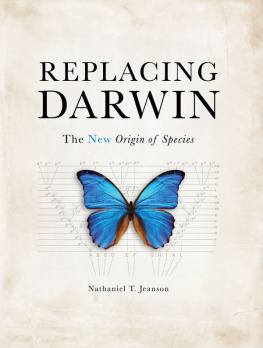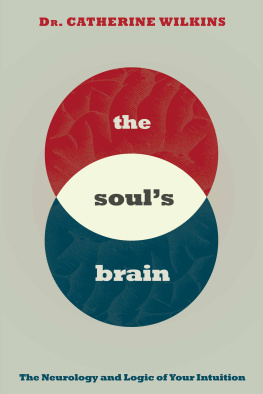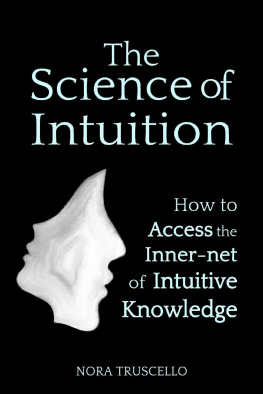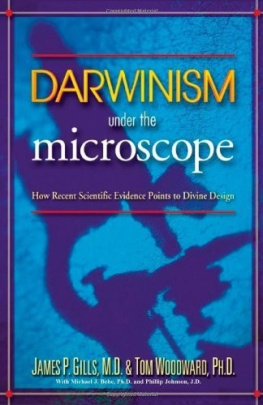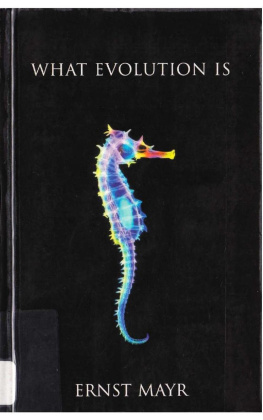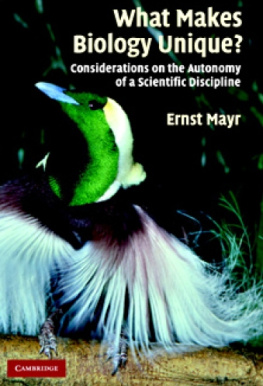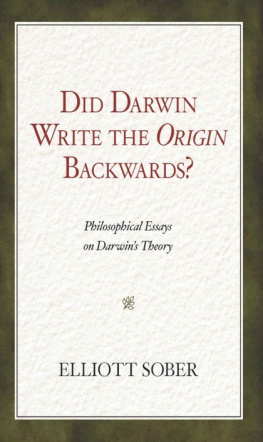
For Anita,
who showed me that one plus one
can be much greater than two
CONTENTS
Guide
In August of 2013, as I was making my way down a picturesque Cambridge street called Kings Parade, I nearly collided with renowned British scientist Sir Alan Fersht. We were a short distance from Cambridge Universitys Gonville and Caius College, where he serves as Master among a distinguished group of scholars including the well-known cosmologist Professor Stephen Hawking. Fersht was exiting a shop, stepping across the sidewalk to his bicycle, and that was where our paths crossed.
I know him as Alan. I had been friends with him for so longhaving worked at research centers directed by him from 1990 to 2002that I assumed we probably still were friends, eleven years after we went our separate ways. Events had tested the friendship, though. From my perspective, an honest conversation making it clear where we stood with each other and why our working relationship had to end so abruptly would have been very helpful when I left his Centre for Protein Engineering in 2002. I had regretted the absence of that conversation over the years, and now, in the space of a few minutes, it occurred to me that he might have regretted it too.
Our time was short. I had a vacationing family waiting for me and Alan had a college waiting for him, so we settled for something less than closure. We did what we could do with a few minutes. After all that had happened previously, those few minutes reaffirmed our friendship, which was a good start.
The initial awkwardness of that encounter proved well worth enduring, as is often the way with awkwardness. I speak as something of an expert on the subject. Most people find their place in the stream of life early on by mastering the art of going with the flow, but I seem to be one of the exceptions. I never set out to oppose the stream. Still, I found myself compelled to take a course you would never choose if the power of the stream were at the forefront of your mind. As anyone whos tried wading across swift waters knows, awkwardness was bound to follow.
I recall a question on a final exam near the beginning of my graduate studies at Caltech: Which of the biological macromolecules is apt to have been the first living molecule, and why? If that sounds like Greek to you, relax. I promise to write in plain English. All you need to know is that the question is about how life began, posed with the unstated assumption that it began by ordinary molecular processes. That assumption had been ingrained in biological thinking for so long that it went without saying. Every student in the class understood this, but I understood it more critically than most did. I knew the expected response to the test question, but through my critical lens, that response seemed scientifically questionable. So I had a choice: Do I go with the flow, or do I push against it?
I decided to give the expected answer in full and thenfor extra creditto state why I found that answer unconvincing. I explained why, contrary to the consensus view, I didnt think any molecule has what would be needed to start life. As shrewd as that seemed at the time, I learned when my exam was returned (with points deducted) that we students were expected not only to know current thinking in biology but also to accept it without resistance. We were there as much to be acculturated as educated.
I had learned my lesson. The stream of scientific consensus flows with an almost irresistible current.
Almost.
AWKWARD SCIENCE
Of all the controversial ideas to come from modern science, none has brought more awkwardness than Darwins idea of evolution through natural selection. We know natural selection means survival of the fittest, which in one sense isnt at all controversial. Indeed, Darwins observation that fitter individuals are apt to have more offspring is so obvious it hardly needs to be stated. But how can something with so little contenta truismpossibly explain the astounding richness of life?
The biggest question on everyones minds has never been the question of survival but rather the question of originour origin in particular. How did we get here? Even if you think natural selection is the answer, you have to admit to a degree of internal conflict over the matter. Francis Crick acknowledged this conflict, at least implicitly, when he cautioned that biologists must constantly keep in mind that what they see was not designed, but rather evolved. So if Darwins claim is true, then its a truth we all find ourselves doubtingat least subconsciouslyand if its false, then were to be commended for doubting it. Awkwardness clings to it either way.
In fact, though you wont see this in any textbook, Darwin implicitly conceded something that adds to the unease surrounding his theory. All six editions of his book On the Origin of Species include a few paragraphs in the conclusion where he addressed the widespread rejection of his theory by his scientific peers. He began with a question: Why, it may be asked, have all the most eminent living naturalists and geologists rejected this view of the mutability of species? The answer, he thought, was their closed-mindedness. Sensing little hope of opening more than a few of those minds, he decided to look with confidence to the future, to young and rising naturalists, who will be able to view both sides of the question with impartiality.
To Darwins own great surprise, this near total rejection of his theory turned to near total acceptance within just a few years. Up to the publication of the fifth edition of his book in 1869, his original gloomy assessment of the reception of his work wasnt in need of revision. Then in 1872, a mere three years later, the sixth edition followed those original paragraphs with this commentary:
As a record of a former state of things, I have retained in the foregoing paragraphs, and elsewhere, several sentences which imply that naturalists believe in the separate creation of each species; and I have been much censured for having thus expressed myself. But undoubtedly this was the general belief when the first edition of the present work appeared. I formerly spoke to very many naturalists on the subject of evolution, and never once met with any sympathetic agreement. It is probable that some did then believe in evolution, but they were either silent, or expressed themselves so ambiguously that it was not easy to understand their meaning. Now things are wholly changed, and almost every naturalist admits the great principle of evolution.
What would cause such a sudden reversal of scientific opinion? Did a new scientific discovery appear in the late 1860s or early 1870spotent enough to convince the skeptics that Darwin was right after all? Clearly not, as Darwin surely would have cited such a decisive finding. But if science itself wasnt the cause of the change, then what was?
Whether he intended to or not, Darwin reveals here that peer pressure is a part of science, happening behind the scenes as the various scientific interests compete against one another for influence. If its a plain historical fact that the experts didnt side with Darwin in the early 1860s, then why would he have been much censured by his peers for saying so? Its as though his colleagues wanted all mention of opposition expunged from the record now that this opposition had faded. Darwin resisted the pressure applied to him on that occasion, but what if others, perhaps under even greater pressure, were less able to resist? Might the earlier inability of some scientists to express their support of Darwins theorythe silence and ambiguity of expression Darwin referred tohave been the result of peer pressure too? And if so, then might the sudden change in Darwins favor have been more like a change of power than a change of mindsa sudden reversal of the streams flow?
Next page
